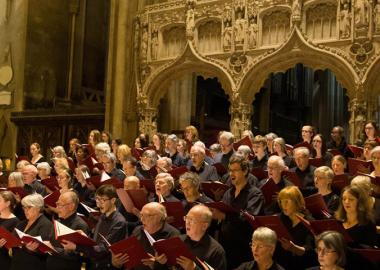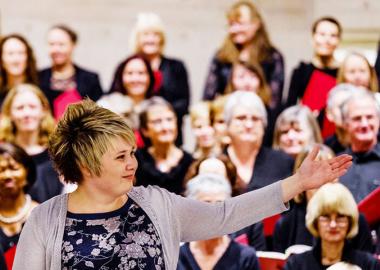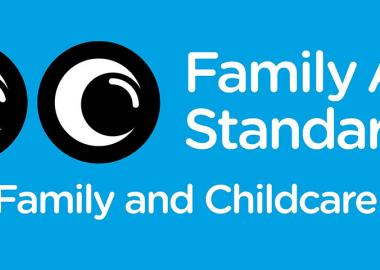Robert Convey of member group Bristol Choral Society explains how they have begun to create the audiences and music makers of the future with their Mini Messiah concerts.
Background
Mini Messiah is a 50 minute long, afternoon performance of selected movements from Handel's famous oratorio. The ethos behind it is to introduce the work to children, whilst maintaining a standard of performance that will make the concert appeal to all members of the family. A unique selling point of this performance is that both Chorus and soloists sing completely from memory, allowing them to engage easily with the audience.
The challenge
Although BCS has for a long time been in Education work, our Messiah concert day opened up an opportunity for us to easily programme a regular family event and start to build an audience base for future work. Through this concert, we wanted to create informal environment, where both children and adults alike feel totally at ease.
What we did
We advertised the concert in primary schools, on family websites and through mothers groups. We have also started to build our own family concert e-bulletin list which enables us to send targeted e-mail campaigns to past attendees.
Children's ticket were free, and adults tickets were priced very reasonably (under £10), Hopefully, this keeps the concert accessible to the widest possible demographic of audience.
Movements were carefully selected and as well as the chorus, all four soloists and the orchestra were also showcased. A unique selling point of this performance is that both Chorus and soloists sing completely from memory, allowing them to engage easily with the audience. BCS' Musical Director Adrian Partington introduced all the vocal parts and the instruments, as well as the music itself.
Children often came down to the front and stood behind Adrian whist he was conducting or really engaged with the soloists while they were singing, something we actively encouraged. Our biggest challenge was that some of the venue stewards just don't seem to understand the nature of the concert. This is something that we can liaise with the venues about, to improve for future performances.
The results
Over the last four years we seem to have developed a winning formula, and attending the concert seems to have become part of many families' Christmas celebrations. Last December we had around 140 people in for the performance, and the atmosphere was absolutely fantastic. One customer sent us this message:
Just wanted to say thank you so much for yesterday's Mini Messiah concert. We took my parents and our three children (5, 7, 9) and we all loved it. What amazed me was that even though there was a huge amount of noise from children all over the hall, there were still many moments of spine-tingling wonder; I frequently found that I'd somehow tuned out all the extraneous noise and had only heard the music. Adrian, the way you talked the audience through what was happening, and broke down the instrumental and choral parts, was wonderful. Your manner was just brilliant. I was not the only one of our party moved to tears at the end. What a joyful, glorious experience. Thank you all very much indeed.
As well as our Apprentice Scheme for teenagers (many of whom perform in the Mini Messiah concerts), BCS also works closely with primary schools in Bristol through the 'Bristol Sings Music' project, headed up by Laurie Stewart.
Our involvement in this project enabled the Choral Society to put on Alexander Le Strange's 'Zimbe' last year, at the Colston Hall. This performance involved 300 primary school children form across the city. The concert was a huge success, and the fact that we have been developing a family audience through the regular Mini Messiah concerts really helped.
Please 'watch this space', as we are planning to do Alexander Le Strange's new piece 'Ahoy! Sing for the Mary Rose', in the not too distant future.
What we learnt
|
Find out more about the Bristol Choral Society on their website or follow them on Facebook / Twitter.
We hope you find this Making Music resource useful. If you have any comments or suggestions about the guidance please contact us. Whilst every effort is made to ensure that the content of this guidance is accurate and up to date, Making Music do not warrant, nor accept any liability or responsibility for the completeness or accuracy of the content, or for any loss which may arise from reliance on the information contained in it.










